


Clinical biochemistry is concerned with the biochemical investigation of bodily fluids, for example, blood, cerebrospinal fluid and urine, to diagnose diseases.
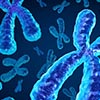
Cytogenetics is a branch of genetics that is concerned with the study of the structure and function of the cell, especially the chromosomes in health ...
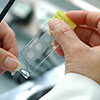
Histopathology (or histology) involves the examination of sampled whole tissues under the microscope. Three main types of specimen are received...
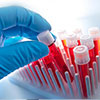
Haematopathology & Hemostasis are the branches of pathology which studies diseases of hematopoietic (blood) cells & blood components.

Clinical Microbiology is one of the most evolving branches of laboratory medicine. The clinical microbiology laboratory is central to the diagnosis.
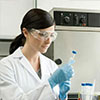
Immunoassay is a technology that allows for the simultaneous quantification of up to 100 analytes in serum/plasma and other body fluids.
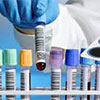
Serology is the scientific study of serum and other body fluids. In practice, the term usually refers to the diagnostic identification of antibodies ...
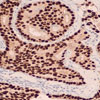
Immunohistochemistry (IHC) is the most common application of immunostaining. It involves the process of selectively identifying antigens ...

The human leukocyte antigen (HLA) system or complex is a group of related proteins that are encoded by the major histocompatibility complex (MHC) ...
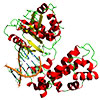
A real-time polymerase chain reaction (real-time PCR), also known as quantitative polymerase chain reaction (qPCR), is a laboratory technique ...

Hormones serve to communicate between organs and tissues for physiological regulation and behavioral activities such as digestion, metabolism, ...
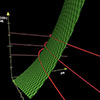
An ABG test measures the blood gas tension values of the arterial partial pressure of oxygen (PaO2), and the arterial partial pressure of carbon ....

Clinical pathology is a medical specialty that is concerned with the diagnosis of disease based on the laboratory analysis of bodily fluids, such as ...

Physical therapy (PT), also known as physiotherapy, is one of the allied health professions that, by using evidence-based kinesiology, exercise prescription, health education, mobilization, electrical and physical agents, treats acute or chronic pain, movement and physical impairments resulting from injury, trauma or illness typically of musculoskeletal, cardiovascular, respiratory, neurological and endocrinological origins. Physical therapy is used to improve a patient's physical functions through physical examination, diagnosis, prognosis, patient education, physical intervention, rehabilitation, disease prevention and health promotion.

Sprains, Strains & Fractures...

Hip, Knee, Ankle & Wrist Conditions...

Rotator Cuff Injuries...

Carpal Tunnel Syndrome...

Arthritic Conditions...

Pre & Post-Operation Surgical Rehabilitation...

Osteoporosis & Bone Health...

Postural Dysfunctions...

Whiplash...

Fibromyalgia...

Plantar Fasciitis....

Strokes...

Parkinson...

Morton Neuron Disease...

Cerebral Palsy...

Delayed Milestones...

Muscular Dystrophy...

M R Kits...

Pre & Post Operative Rehab...

Pulmonary Rehab...